Episodes
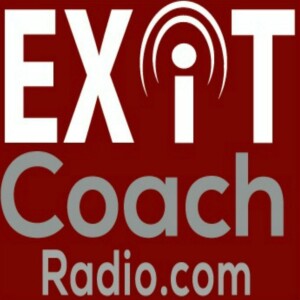
Thursday Aug 15, 2019
David McAdams - Maximize Your Social Security Benefits
Thursday Aug 15, 2019
Thursday Aug 15, 2019

Listeners: You asked, so we found FREE solutions for 5 of your top problem areas. Text “TOOLBELT” to 44222 or click here
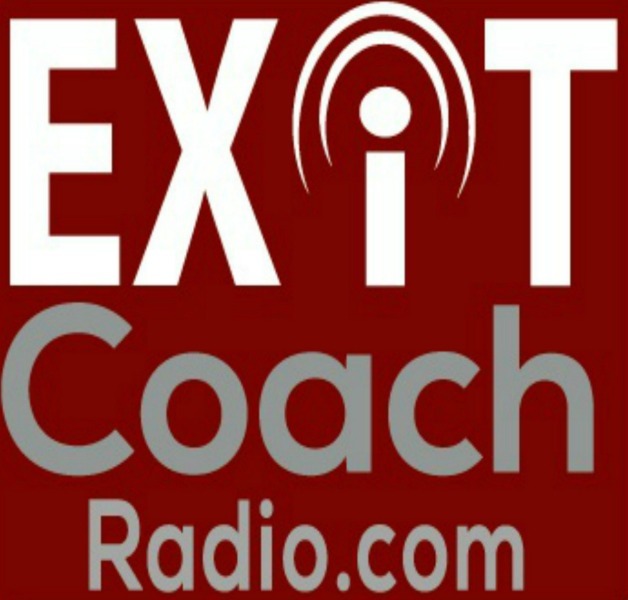
Monday Apr 17, 2017
Nellie Akalp - Why You Should Register Your Business
Monday Apr 17, 2017
Monday Apr 17, 2017

Nellie Akalp is the CEO and Founder of CorpNet.com, an online legal document filing service that helps entrepreneurs start their businesses. Nellie is here today to chat about the importance of registering a business. She will share some basics about business structures, what structure is best for which type of business, why it is important to incorporate, when to incorporate and in what state to incorporate.
Questions Answered:
1) What are the basics of business structures?
2) What should our audience know about them?
3) When should a business incorporate?
Contact Info:
Website: www.corpnet.com
Email: allison@matryshkamedia.com
Listeners: You asked, so we found FREE solutions for 5 of your top problem areas. Text “TOOLBELT” to 44222 or click here
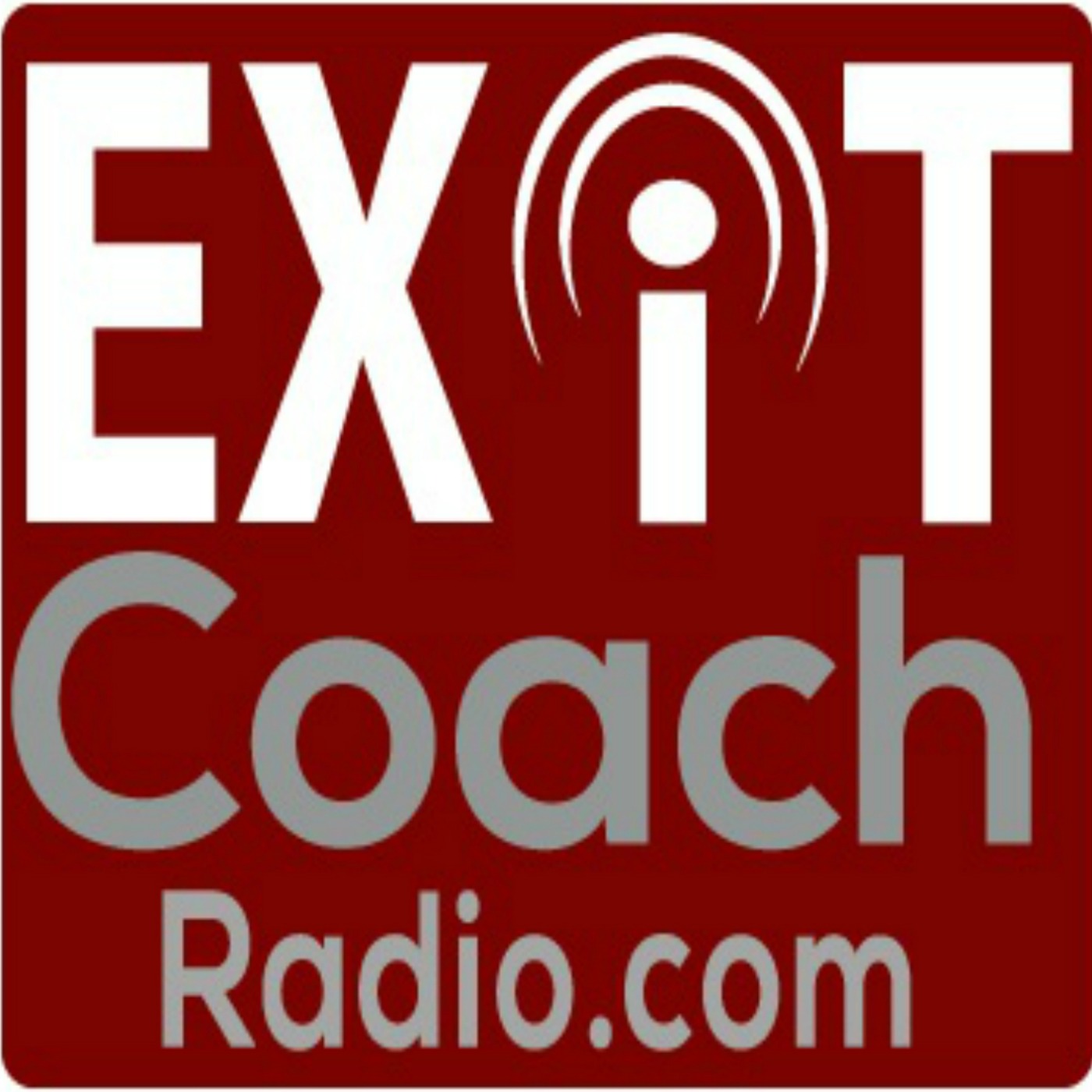
Friday Mar 10, 2017
Larry Sukay - A Strategic Approach to Purchasing Insurance
Friday Mar 10, 2017
Friday Mar 10, 2017

Here's a past highlight from one of our Guests. Find their full interview at www.ExitCoachRadio.com -- just click "Audio Library" in the "LISTEN" section and enter their name to hear all of their past interviews!
Transcript:
Larry: Purchasing insurance: so often that a CEO of an organization or the CFO of an organization, the biggest mistake they make is they go ahead and they focus on the cost of it. So that, kind of going back to what's the process? You know, first you're doing an organizational analysis or operational analysis, then you do a coverage analysis of the current programs, and then the third step is to write an insurance spec. Okay, so that's spelling out what insurance that we need and how it needs to be structured, and then going out to market and getting quotes based on that. Limits of insurance mean absolutely nothing, what's critical is the details that are within those policies. So if you have an insurance spec of what everything is supposed to be covered, how it's supposed to be covered, the detail of what you're looking for relative to the terminology within that legal contract, then you go ahead and look at the market price based on that. That's how you buy insurance. Buying it just based on limits is literally Russian Roulette.
Your friends who are business owners or self-employed NEED this information! Please share it with them by clicking on SHARE below!
To hear more tips from over 750 Advisors, visit exitcoachradio.com
Listeners: You asked, so we found FREE solutions for 5 of your top problem areas. Text “TOOLBELT” to 44222 or click here

Tuesday Nov 22, 2016
Pete Tentler - Clearing Up 2 Misconceptions About Reverse Mortgages
Tuesday Nov 22, 2016
Tuesday Nov 22, 2016

What have you heard about Reverse Mortgages? In this brief highlight, Pete Tentler of Liberty Home Equity dispels 2 common misconceptions about Reverse Mortgages. The interview was conducted by Bill Black, The Exit Coach, on The Exit Coach Radio Show - the Information Station for Baby Boomer Business Owners contemplating Business Succession and Exit Planning.
Transcript:
Pete: Many believe that when you obtain a reverse mortgage, the lender owns the home. However, this is not true. The borrower's will retain the title and ownership during the life of the loan, and they can sell their home at any time. The loan will not become due as long as the borrower continues to meet loan obligations, such as living in their home as their primary residence, maintaining the home according to the FHA requirements, and paying property taxes and homeowner's insurance, just like you normally would.
Bill: I had heard one time that home equity conversion mortgage means that they lose the home when they die. Now, is that correct, or is that wrong?
Pete: That's wrong. This is another common misconception. Their heirs can sell the home to pay off the loan or keep the home by paying off the loan, balance in full. So, they can live in the home for as long as they desire, and at no time can we say, "hey, time for you to move out." As long as they maintain the property as their primary residence, and pay their property taxes and insurance, they can live in the home forever.
What can you do RIGHT NOW to work on making your Business more Sustainable, Transferable and Valuable in the future? Visit our Online Planning Links at www.ExitCoachRadio.com/links
Sponsors: Exit & Retirement Strategies, Inc. | BEI |Jeffrey M Verdon Law Group | Albert J Rasch & Associates | Ghassemian Law Group
Listening from an iPhone or iPad? Get our App in the App Store: click here

Wednesday Sep 07, 2016
Larry Sukay - Behavioral Risk Management as a Strategy to Control Costs
Wednesday Sep 07, 2016
Wednesday Sep 07, 2016

In this 1 minute highlight, Larry Sukay, Vice President, Patriot Risk & Insurance Services discusses the concept of Behavioral Risk Management.
Transcript:
Larry: For about 15 years I did risk management, organizational, operational, and cultural change management for Fortune 1,000 organizations. And during that time period, I pioneered a process which now is referred to as, Behavioral Risk Management. And it's based on the premise that culture of any organization drives the behavior within that organization, and behavior then will drive loss, and if you're able to control your loss, you'll ultimately then be able to control your cost. So, I spent a number of years developing that whole concept and principle. Ultimately, I was doing a lot of work with larger organizations using a lot of continuous processes and proving demming techniques and so forth, and turning these companies around. From a risk management perspective, these were organizations that had high worker's comp cost, they might be organizations where they're experiencing 10% loss as a percentage of payroll. 10% is extremely high, and they had gone through all the traditional means of trying to reduce that loss, and ultimately they just got so frustrated they brought me in, and within periods of time I was able to bring those costs down.
Visit ExitCoachRadio.com for Audio, Videos, Books and Interactive Tools to Grow Your Business Value, Protect Your Family and Prepare for your Future Transition.
New! Get our iPhone app at the App Store - search for Exit Coach Radio. Grow your business value by up to 71% - take a free assessment at www.BizGrowth123.com

Monday Sep 05, 2016
Peter Cross - The 5x Impact of Workers Comp Claims on Businesses
Monday Sep 05, 2016
Monday Sep 05, 2016

Peter Cross of ISU Insurance highlights the real cost of a Workers Comp insurance claim to a Business.
Transcript:
Peter: When you really look at the hidden balance sheet that occurs and goes along with claims, it's not just premiums you're paying, it's the management time that's tied up addressing claims, it's the supervisor's time tied up in addressing claims, and when you really look at what it's costing you, if you spend $10,000 on a claim, they say that it's a $50,000 cost to the business.
Bill: Oh, is that right? It's a five times magnifier because of the soft cost of administrating and pulling it together and all the paperwork and everything?
Peter: Correct. For a simple example: if you have someone who's out for about 2 weeks and you've got to replace them, you've got the cost of insurance that would potentially go up, the replacement of that person, the retraining of that person, the lack of productivity that comes out of it, the increased potential for another claim, and all those other things that are residing with it. So, when you start to amplify and put all that detail in, it really can be anywhere from a 3 to 5 times magnifier like that.
Visit ExitCoachRadio.com for Audio, Videos, Books and Interactive Tools to Grow Your Business Value, Protect Your Family and Prepare for your Future Transition.
New! Get our iPhone app at the App Store - search for Exit Coach Radio. Grow your business value by up to 71% - take a free assessment at www.BizGrowth123.com
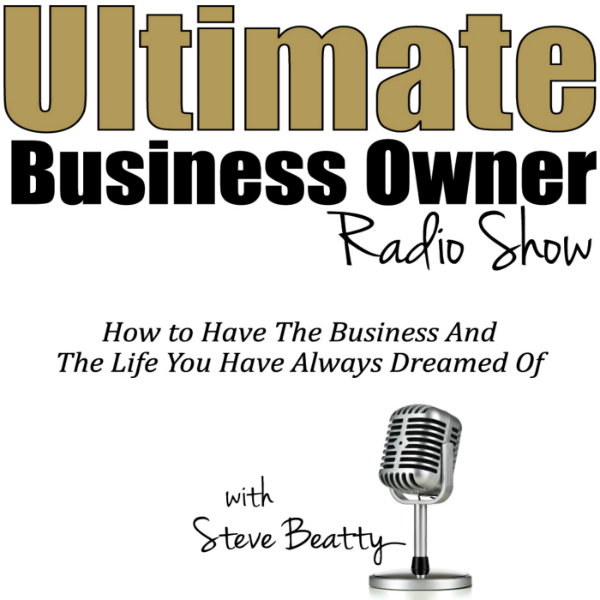
Saturday Sep 13, 2014
Saturday Sep 13, 2014
Steve Beatty's guest shares tips & ideas for age 50+ business owners. New content daily - check back often!
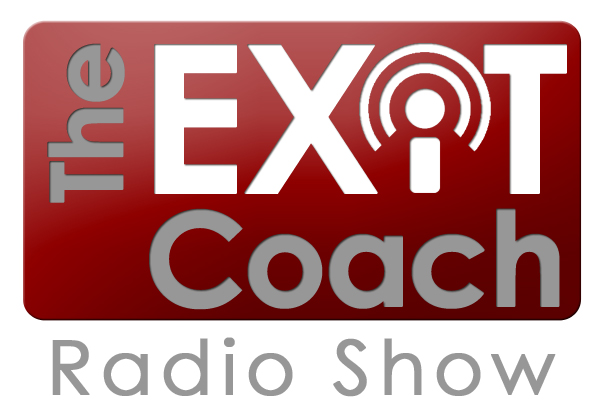
Thursday Mar 27, 2014
(18m) Bill Black - Common Knowledge from Our First 100 Advisor Interviews
Thursday Mar 27, 2014
Thursday Mar 27, 2014
Bill Black takes the mic for the 100th Episode of The Exit Coach Radio Show to describe common knowledge from our first 100 Advisor interviews.
We add new content daily! Listen on iTunes: iTunes.ExitcoachRadio.com . See the Index for more on this Topic or by this Guest .
Host: Bill Black, The Exit Coach Radio Show - the Information Station for age 50+ business owners.
Click for FREE E-book "100 Words from 20 Advisors"
How Ready Is Your Business for Transfer or Sale?
Click for FREE Assessment Report

"Come Listen for a Minute"!

Thursday Feb 20, 2014
(Article) Owner Disability and Other Lifetime Transfer Events - Bill Black
Thursday Feb 20, 2014
Thursday Feb 20, 2014
When co-owners are united in striving toward common business goals such as growing revenue, building business value and increasing cash flow, the business dynamics can be wonderfully positive and strong. These owners move together to reach common goals. Contrast that bright picture with what can happen when, suddenly perhaps, the goals of the owners diverge.
Most closely held business owners are full-time employees (and more) in their businesses. What happens when one of the owners wants or needs to leave the company?
Possible reasons for leaving are many, ranging from boredom to more dramatic and unexpected events such as the sudden disability of an owner. Let’s use owner disability to illustrate some of the significant issues raised when ownership goals are no longer aligned.
When disability strikes an owner, the company will endure substantial hardships, both economic and operational. More importantly, in the absence of a buy-sell agreement, the disabled owner’s income stream from the company also may evaporate. This problem confronted Steve Hughes, one of three equal shareholders in a growing advertising agency.
At age 38, Steve suddenly had a stroke. As with many stroke victims, his recovery was incomplete. Physically, he was the picture of health (his golf game even improved!); but he totally lost his ability to speak and read. Doctors told Steve he would never be able to return to work.
Steve’s firm had a buy-sell agreement, but it covered only a buyout at death and an option for the company to buy Steve’s stock if he were to try to sell it to a third party. Trying to find and sell closely held stock to a third party is a difficult proposition anytime; Steve’s disability made it impossible. Even if his fellow shareholders had wanted to continue his salary, they did not have the resources to do so indefinitely.
As a result, the company and Steve were left in a classic dilemma—the company, or rather the remaining shareholders, wanted to purchase Steve’s stock so that its future appreciation in value, due now to their efforts alone, would be fully available to them. Conversely, as Steve’s family soon realized, the owners of closely held stock rarely receive current benefits in the form of dividends. The profits of a closely held corporation are either accumulated by the company or distributed to the active shareholders in the form of salaries, bonuses and other perks.
In short, Steve’s family would not get what it needed most—cash—to replace the salary Steve was no longer earning. Steve’s partners faced the prospect that their efforts to increase the value of the business would reward Steve as much as themselves.
This dilemma could be solved only by a buyout of Steve’s stock. His family then could receive a fair value for his business interest when they otherwise would receive nothing (until the company was eventually sold or liquidated). Meanwhile, ownership would be left with those responsible for the company’s success.
The Hughes buyout faced several problems arising from the now-divergent goals of the owners. Prior to Steve’s unexpected disability event, joint contributions of time, effort and capital created unanimity among owners. Now, one owner needs cash, while the company and the other owners want to retain earnings for growth.
Further, the remaining owners want to pay as little as possible over as long a time period as possible because they (or the company):
- Will pay for acquiring that value with after-tax dollars; and
- Want to preserve, not spend, capital on a non-productive asset such as stock of the company.
Before Steve’s stroke there was mutual agreement and understanding among the owners. After his disability, there are radically different owner wants and needs. The result: Owner discord and impaired business performance.
Typically, we must address four major issues that arise in situations like this:
- Agreement on the business value.
- Funding for the buyout.
- Agreement on the payment terms of the buyout.
- Payment to the departing owner with the least income tax consequences.
A buy-sell agreement drafted before such transfer events occur and when mutual ownership objectives unite all owners can anticipate and manage each of these issues.
If you would like to discuss in more detail ways to prevent problems in a transfer of ownership, please contact me.

